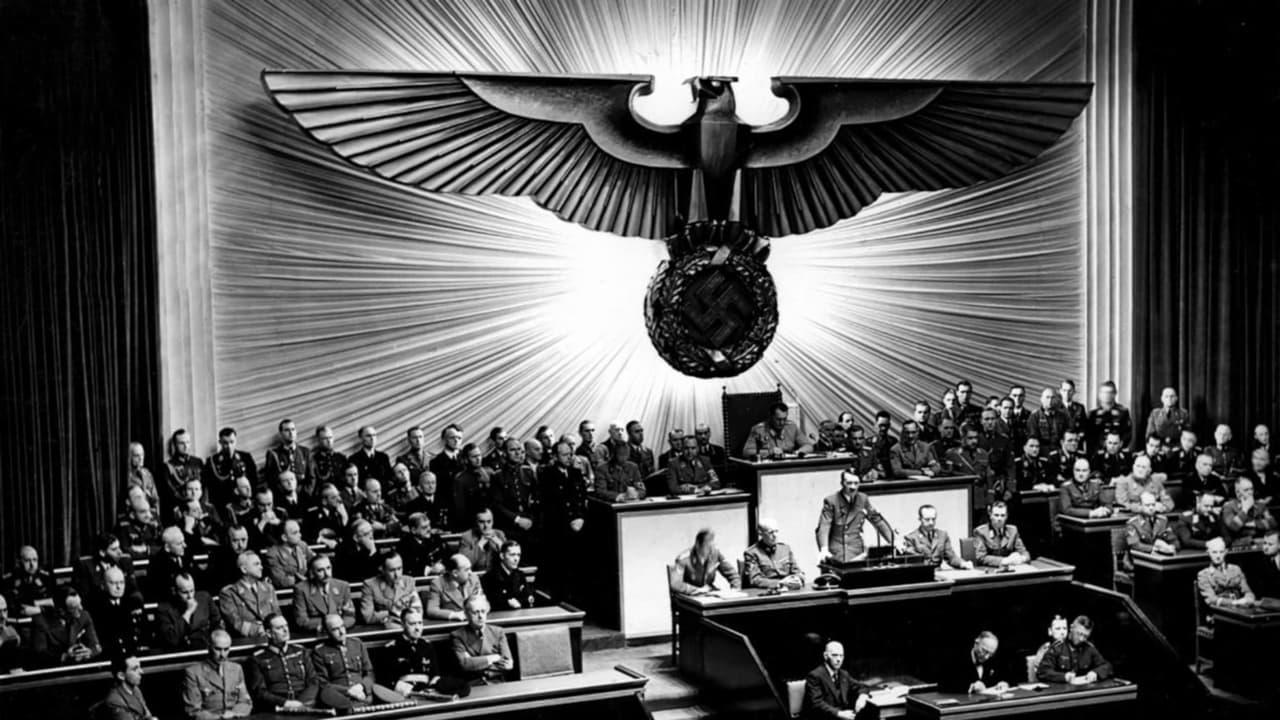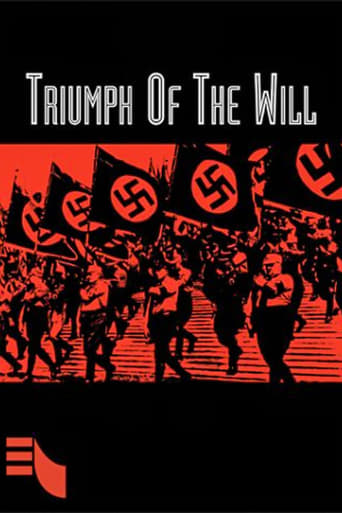Twilightfa
Watch something else. There are very few redeeming qualities to this film.
Ogosmith
Each character in this movie — down to the smallest one — is an individual rather than a type, prone to spontaneous changes of mood and sometimes amusing outbursts of pettiness or ill humor.
Derry Herrera
Not sure how, but this is easily one of the best movies all summer. Multiple levels of funny, never takes itself seriously, super colorful, and creative.
Nicole
I enjoyed watching this film and would recommend other to give it a try , (as I am) but this movie, although enjoyable to watch due to the better than average acting fails to add anything new to its storyline that is all too familiar to these types of movies.
s-69660
I have to say this video is nothing but evil. I cannot rate more than 1 on it.
Eric Stevenson
Well, what can you say about the most infamous person to ever exist in real life? It's hard to review a documentary, but I certainly can. Anyway, it was weird to have a documentary without narration. Then again, you know how those wacky Nazis were! Rudolf Hess was featured the most prominently next to Hitler. Hermann Goering seemed to only appear briefly at the end. Is it sad that I am so familiar with how the most famous Nazis work? The strangest thing might be that this movie does not contain a single anti-Semitic line. There are a few quotes where Hitler mentions the Germans being a superior race but even then, the term "Aryan" was never once used. Everyone now views this as an historical documentary, even though it obviously wasn't. Hitler has become such a staple of pop culture I recognize a lot of stock footage came from this movie.Photographs of him in general seemed to have originated from here. A lot of documentaries exaggerate or simply outright lie to their viewers. I guess I have to give the creators credit for being honest. There were segments showing a Nazi's name before a brief speech. I only seemed to recognize Alfred Rosenberg and Joseph Goebbels. Guess I DON'T know my Nazis that well. What's also weird is how you would think that the whole movie would just be one big speech or a series of speeches. There were a lot of times where there was no talking whatsoever. It was just showing young people training or people heiling Hitler in general.This was before World War II and the Holocaust so it might not be as historically significant as you would think. Of course, it's something every historian should look at just to have the best movie depiction of the real life Adolf Hitler. I guess modern documentaries that chronicle his atrocities are technically more entertaining, but this is great to watch in its raw form. Hitler has been depicted more times than any other historical figure, so he's practically become a myth in himself. It's all the more powerful to see him as his actual self.Some people might compare this to "Birth Of A Nation" in that it's a movie people are ashamed of but is still technically a great movie. I personally found this better than that. BOAN did in fact depict the Ku Klux Klan as suppressing blacks, but this did not show depiction of Nazis oppressing Jews or really anybody else. Now, it's really hard to compare fiction to real life, but obviously a documentary comes off as more authentic. Don't worry, you won't be supporting genocide by loving this. Perfect ****.
Horst in Translation (filmreviews@web.de)
"Triumph des Willens" or "Triumph of the Will" is a German black-and-white documentary film from 80 years ago. 1935 means this was done 2 years after the Nazis' rise to power, one year before the Olympic Games (fittingly the mentions of "peace" in this film) and 4 years before World War II. It documentary the Nazi Party rally 1934 in Nuremberg. We see great parades, we see significant speeches by all the big players from German politics at that time. Of course, this also includes Adolf Hitler, who we see in quite a few speeches, also the one that closes the ceremony.I must say it is a very absurd watch, sometimes even funny in an embarrassing way and it is hard to believe that people took this really seriously. But obviously they did and it's difficult to judge them as we have not lived during that era and have not lived through the hard times of World War I and the years afterward. It is your decision what approach to take to that film. If you see it from the perspective trying to find out about and understand history in 1930s Germany, this may be a rewarding experience. If not, you will probably disgusted by the despicable recordings, even if it is nowhere near the likes of "Jud Süß" obviously. It is propaganda, but not that hateful really.I do not agree with the decision to ban films like these. We need to keep them alive and watch them in order to understand history, even if it is about dark times. We need to be informed in order to make sure times like these won't repeat themselves again at some point in the future. Denial of the past is not the way to go. This is also why I give this film a thumbs up, a fairly high rating and recommend this one to people with an interest in global politics of the first half of the 20th century. If that description fits you, go check it out no matter where you come from.
chuckchuck21
Come and see them all, the movers & shakers of Nazi Germany in 1934. Those you know & some you may not. This was peace time Germany & Rally's were the order of the day. There's not a lot of action in this movie but there is a lot of display. The symbols of the NSDAP, in English that's the Nationalist Social German Workers Party, in German it's Nationale Sozialistische Deutsche Arbeiter Partei, are everywhere in multitudes to rival the number of attendees. This is not an easy watch & quite frankly can become boring. Even seeing the faces of the Nazi leaders can grow old though it is a great introduction to their faces. You may have to use the pause button to read the names & offices held by these men.A glimpse of the players which you see & hear speak at the rallies- Adolph Hitler: Fuhrer Rudolph Hess: Deputy Fuhrer Paul Josef Goebbels: Reich Minister of Enlightenment & Propaganda Martin Bormann: Sec. to the Fuhrer & Head of the Party Chancellery (in order to talk to Hitler you talked to this man first) Hermann Goering: Air Marshall then Reichmarschall Werner Von Blomberg: Minister of War Victor Lutze: S. A. Chief of Staff- these are the brown shirts that pacified Germany internally. Alfred Rosenberg: Reichleiter & later Reich Minister Dr. Otto Dietrich: Reichleiter & Propaganda Press Chief Dr. Hans Frank: Reichs Minister of Justice, Gov. Gen. of Occupied Poland Dr. Franz Todt Gen. Inspector Highways & Construction, Minister Armaments & Munitions Fritz Reinhardt: State Secretary Ministry of Finance Richard-Walther Darre: Agriculture Leader & Head of Central Office Race & Resettlement Dr. Robert Ley: Reichleiter & the Head of the German Labor Front Baldur von Schirach: German Youth Leader Konstantin Kierl: Head of the German Labor Service Julius Schaub: SS Adjutant to Hitler Wilhelm Bruckner SA Adjutant to Hitler Adolph Wagner: Gauleiter of MunichThe only way to get through Triumph of the Will is to watch the people & ask, "What are they doing that millions of others haven't?" The show is all Nazi Rally documentations, one after another, the saturation of political symbols exceeds a Democratic or Republican convention. You do get an A-list of the movers & shakers in the Nazi Party & a chance to actually experience Hitler's speeches to his faithful.It's just difficult to believe that from these fires comes the historical Germany of WW-II. The people went for it hook line & sinker having just come out of terrible inflation & what they deemed to be national embarrassment. It's not inspiring or riveting but it is informative & leaves lots of questions about that nation & its people at that time. It brings the question of how far nationalism should be accepted by people up for consideration. They sold their allegiance for a feeling of safety & well-being along with the promise of a brighter future if only they committed themselves faithfully to their leaders.I once lived there in '71 & '72 and I can state that it's extremely difficult to associate the German actions of WW-II to my living experience in the country about 30 years later. This subject should not become an obsession with anyone in my way of thinking but it should be an awareness & a warning, I believe you'll like the directorial touches used by Leni Riefenstahl who perhaps had talent that was wasted after the war due her working for the Nazis.

